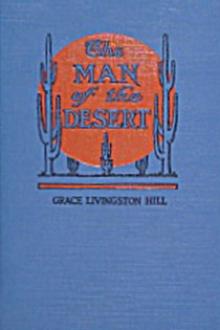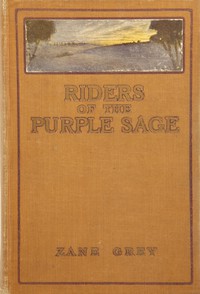The Desert of Wheat, Zane Grey [good non fiction books to read .TXT] 📗

- Author: Zane Grey
Book online «The Desert of Wheat, Zane Grey [good non fiction books to read .TXT] 📗». Author Zane Grey
Dixon was one of the listeners. He laughed.
"Rogers, I'd like to have been with you. Next time I'll volunteer. You had action—a run for your money. That's what I enlisted for. Standing still—doing nothing but wait—that drives me half mad. My years of football have made action necessary. Otherwise I go stale in mind and body.… Last night, before you went on that scouting trip, I had been on duty two hours. Near midnight. The shelling had died down. All became quiet. No flares—no flashes anywhere. There was a luminous kind of glow in the sky—moonlight through thin clouds. I had to listen and watch. But I couldn't keep back my thoughts. There I was, a soldier, facing No Man's Land, across whose dark space were the Huns we have come to regard as devils in brutality, yet less than men.… And I thought of home. No man knows what home really is until he stands that lonely midnight guard. A shipwrecked sailor appreciates the comforts he once had; a desert wanderer, lost and starving, remembers the food he once wasted; a volunteer soldier, facing death in the darkness, thinks of his home! It is a hell of a feeling!… And, thinking of home, I remembered my girl. I've been gone four months—have been at the front seven days (or is it seven years?) and last night in the darkness she came to me. Oh yes! she was there! She seemed reproachful, as she was when she coaxed me not to enlist. My girl was not one of the kind who sends her lover to war and swears she will die an old maid unless he returns. Mine begged me to stay home, or at least wait for the draft. But I wasn't built that way. I enlisted. And last night I felt the bitterness of a soldier's fate. All this beautiful stuff is bunk!… My girl is a peach. She had many admirers, two in particular that made me run my best down the stretch. One is club-footed. He couldn't fight. The other is all yellow. Him she liked best. He had her fooled, the damned slacker.… I wish I could believe I'd get safe back home, with a few Huns to my credit—the Croix de Guerre—and an officer's uniform. That would be great. How I could show up those fellows!… But I'll get killed—as sure as God made little apples I'll get killed—and she will marry one of the men who would not fight!"
It was about the middle of a clear morning, still cold, but the sun was shining. Guns were speaking intermittently. Those soldiers who were off duty had their gas-masks in their hands. All were gazing intently upward.
Dorn sat a little apart from them. He, too, looked skyward, and he was so absorbed that he did not hear the occasional rumble of a distant gun. He was watching the airmen at work—the most wonderful and famous feature of the war. It absolutely enthralled Dorn. As a boy he had loved to watch the soaring of the golden eagles, and once he had seen a great wide-winged condor, swooping along a mountain-crest. How he had envied them the freedom of the heights—the loneliness of the unscalable crags—the companionship of the clouds! Here he gazed and marveled at the man-eagles of the air.
German planes had ventured over the lines, flying high, and English planes had swept up to intercept them. One was rising then not far away, climbing fast, like a fish-hawk with prey in its claws. Its color, its framework, its propeller, and its aviator showed distinctly against the sky. The buzzing, high-pitched drone of its motor floated down.
The other aeroplanes, far above, had lost their semblance to mechanical man-driven machines. They were now the eagles of the air. They were rising, circling, diving in maneuvers that Dorn knew meant pursuit. But he could not understand these movements. To him the air-battle looked as it must have looked to an Indian. Birds of prey in combat! Dorn recalled verses he had learned as a boy, written by a poet who sang of future wars in the air. What he prophesied had come true. Was there not a sage now who could pierce the veil of the future and sing of such a thing as sacred human life? Dorn had his doubts. Poets and dreamers appeared not to be the men who could halt materialism. Strangely then, as Dorn gazed bitterly up at these fierce fliers who fought in the heavens, he remembered the story of the three wise men and of Bethlehem. Was it only a story? Where on this





Comments (0)